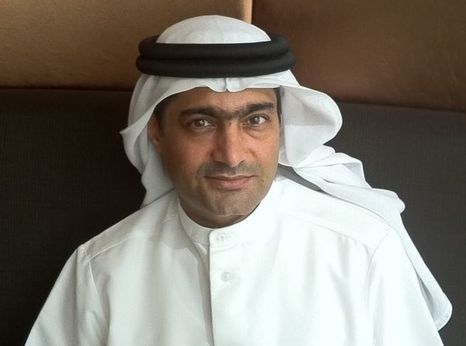Prisoner of conscience in critical condition

Human rights defender and prisoner of conscience, Ahmed Mansoor’s psychological and physical condition has deteriorated to the point that he is no longer able to walk without assistance.
On 7 September 2019, Ahmed Mansoor began a hunger strike to protest his prison conditions, after prison guards beat him. During the first week of his hunger strike, prison guards forced him to eat, but from 14 September 2019 until at least mid-January 2020, Ahmed Mansoor was on continuous hunger strike, ingesting only fluids.
Who is Ahmed Mansor?
Ahmed Mansor is a blogger, a poet and a prominent human rights defender. He was the recipient of the prestigious Martin Ennals Award for Human Rights Defenders in 2015. Ahmed is a member of the advisory committee of the NGO Human Rights Watch’s Middle East and North Africa Division, as well as of the advisory board of the organisation Gulf Centre for Human Rights (GCHR).
Ahmed has documented the human rights situation in UAE since 2006 and has publicly spoken out in defence of human rights on his blog, social media and in interviews with international media. Ahmed is a long-standing trusted friend of Amnesty International and other human rights organisations.
Up until his arrest, he was one of the only independent voices still brave enough to speak out against human rights violations from inside the country.
Ahmed was arrested at his home on 20 March 2017. Ahmed's trial began a year later, and on 29 May 2018, he was sentenced to ten years’ in prison and a fine of 1,000,000 Emirati Dirhams (around GBP £210,700). The court also ordered that he be placed under surveillance for three years after his release.
Bleak prison conditions
Ahmed has been held in solitary confinement since his arrest. He continues to be denied a mattress to sleep on or books to read. He is not allowed outside in the prison yard or given any other means to exercise or access fresh air and sunlight. Since the beginning of his imprisonment in March 2017, the only improvement to Ahmed’s conditions has been the addition of running water to the isolation ward, added in October 2019.
On 17 March 2019, he went on hunger strike to protest his detention conditions, as well as his unfair trial. He ended his hunger strike in mid-April after the authorities promised to address his demands. He was then allowed a few more family visits and was granted a phone call to his mother. Ahmed's physical and psychological health has deteriorated.
Ahmed has been held in solitary confinement since the beginning of his detention on 20 March 2017. Under international law, prolonged solitary confinement – defined as a period of time lasting more than 15 days – is banned, because it is considered to amount to torture, cruel, inhuman or degrading treatment.
On 7 May 2019, seven UN experts condemned Ahmed’s prison conditions and called for him to receive medical treatment, for his detention conditions to be improved and for him to either be given a re-trial in line with international law, or to be immediately released.
Taking Action
We recommend making a PDF of the letter, or scanning a printed copy, and posting it as an image tweeted at the official’s individual Twitter accounts.
This is a bit of an experiment, because we have major difficulty getting valid postal addresses for Arab Gulf states. Twitter offers some advantages in that we can be sure the message is transmitted, even if we can’t make the target read it, and in its public nature, which makes it possible that critical Tweets might be noticed if the target is concerned with his public image. The UAE government prioritises social media engagement for its own brand image.
Twitter: Crown Prince of Abu Dhabi
Sheikh Mohamed bin Zayed Al Nahyan
Crown Prince Court
@MohamedBinZayed
Vice-President and Prime Minister
HH Sheikh Mohammed Bin
Rashid al-Maktoum
@HHShkMohd
- Downloads
- Download in PDF
- Download in Word